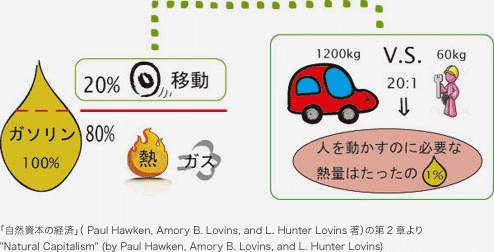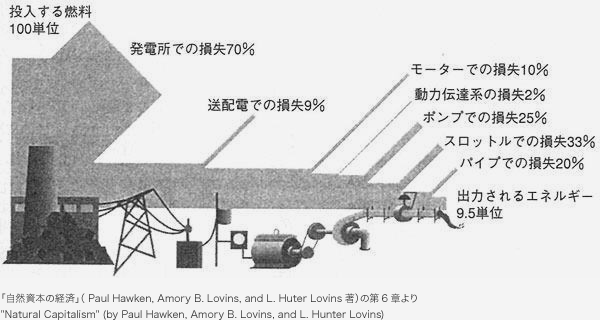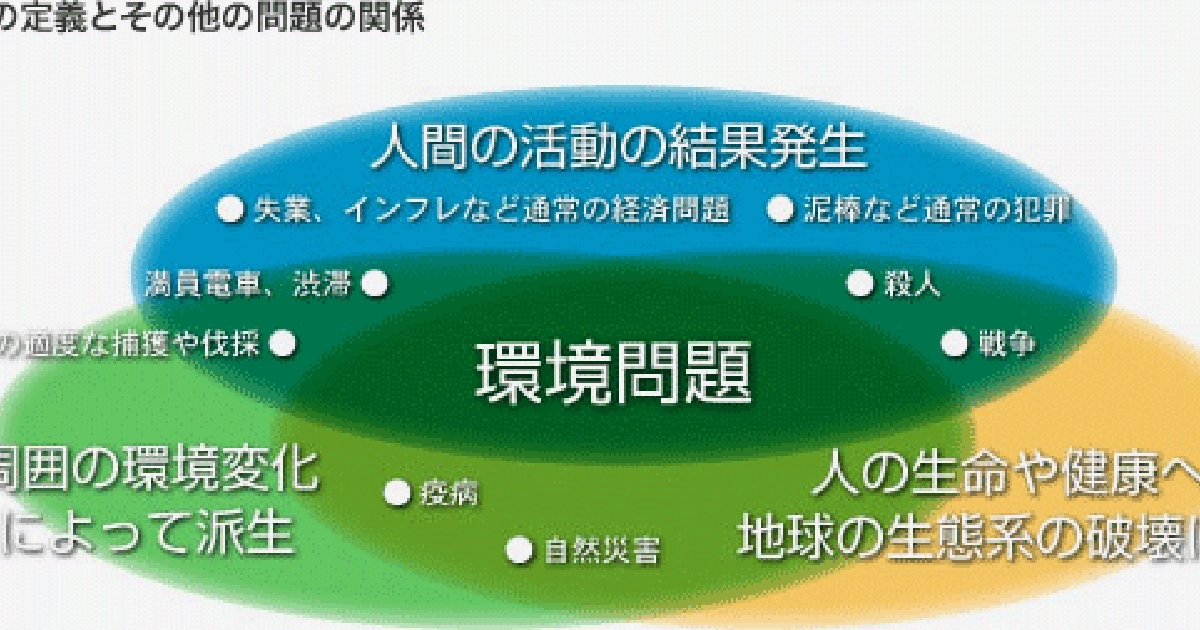Representative's Green Column
13. What is factor4?
2009.03.15
-Why don't you end the waste of resources that are too ridiculous?
● Fundamental measures for environmental problems
At the end of the last column, he said: After all, the ultimate measure to solve important environmental problems is to "reduce the world's population" or "reduce per capita resource consumption" in order to reduce the damage caused by environmental problems. At the same time, it is necessary to "improve the problem of poverty." Of these, reducing the world's population is the most difficult problem that can lead to the loss of humanity itself. Therefore, in reality, it is most important to "reduce per capita resource consumption" and "solve the problem of world poverty" while slowing the growth of the population as much as possible.
● "Limits of Growth" and "First Earth Revolution" (by Club of Rome)
There is a private think tank called the Club of Rome, which consists of 100 academic experts from around the world, and is studying issues related to the survival of humankind. One of the most famous reports written by this club is the book "The Limits of Growth" (1972), which sold more than 10 million copies worldwide. In this book, it was pointed out that if we do not curb population growth and economic growth, the earth and humankind could be devastated within 100 years, including environmental pollution and food shortages.
On the other hand, in the report "First Earth Revolution" published by the Club of Rome in 1992, the world's hunger and poverty, and the conflicts caused by them, are taken up as major problems.
In other words, on the other hand, "even if we curb population growth and economic growth, we cannot secure a long-term survival base for humankind unless we curb resource consumption." At the same time, it is also necessary to make the world (especially developing countries) economically richer in order to overcome the global political tensions associated with global poverty and hunger.
● What is factor4?
By the way," factor4 "is an idea proposed by Amory B. Robins and others in 1995 in response to the crisis of humankind in these reports of the Club of Rome.
In a nutshell, "factor4" doubles the affluence of resources in the world by quadrupling resource productivity (how many goods and services can be produced from a certain amount of resources). The idea is to cut consumption in half.
The "factor4" report makes the following allegations:
In order for the whole world to overcome poverty and maintain a balance between affluence and the global environment, it is necessary to at least quadruple resource productivity (factor4 4). Conversely, if resource productivity can be quadrupled, it will provide a basis for humankind to maintain a balance between affluence and the environment over the long term.
Quadruple resource productivity is already technically possible in many areas and is economically sufficient.
Then, in the factor4, 50 actual cases where factor 4 was realized are taken up, and it is explained that factor 4 is feasible in various fields and economically viable.
In addition to factor4, there is also the idea of factor10, where in order to realize factor4 worldwide, in developed countries such as the United States, EU, and Japan, factor10 (that is, to increase resource productivity by 10 times) is realized. It is claimed by Schmidt Blake et al. That they need to.
● How much resources are you wasting?
Is it really possible to quadruple or quadruple resource productivity, as stated in factor 4 and factor 10? To put it the other way around, are we wasting resources so much now? First, I would like to give some examples in order to reaffirm how much resources we modern people are wasting.
Example 1. In automobiles, only about 1% of the gasoline consumed is effectively used.
Eighty percent of the energy of the gasoline input is the heat generated by the engine and the heat of the exhaust gas.
The energy used to Rotation the wheels is at most 20%.
The weight of a person is about one-twentieth of the total weight of a car. This means that the energy consumed for the driver's own movement is only 1%, which is 1/20 of the 20%.

Example 2. Of the enormous resources distributed in the United States, only 6% are actually converted into products.
In other words, 94% of the resources are turned into garbage as soon as they are mined from the earth, without becoming a product at all.
From "Industrial metabolism" (RU Ayres – 1989).
Example 3. A laptop computer produces 4000 times the weight of the Main body of waste.
In other words, 4 tons of garbage is generated to make a 1 kg notebook computer. Resource efficiency is only 0.025%.
Example 4. 90% of the energy input to the power plant is wasted.
The fuel energy input at the power plant is 100.
70% is lost due to the loss at the power plant, and the remaining 30 becomes electric energy.
(Note: In recent power plants, the loss at the power plant seems to be about 60%.)
Since there is a 9% loss in power transmission and distribution, the electrical energy input to the motor is 27.3.
The loss in the motor is 10% and the output energy from the motor is 24.57.
The loss in the power transmission system is 2%, the loss in the pump is 25%, the loss in the throttle is 33%, the loss in the pipe is 20%, and the energy actually transmitted to the water flowing from the pipe is 9.5.
In other words, 90% of the energy of the input fuel is wasted.

● Would you like to end the waste of resources that are too ridiculous?
Looking at the examples given above, I am amazed at how much resources are wasted.
Looking at it like this, I feel that the idea of factor4 is the same as "Why don't you stop wasting too ridiculous resources?"
When using resources, let's reduce "90% or more waste" (that is, 10% resource efficiency) to at least "60% waste" (that is, 40% resource efficiency). I think it can be said that the claim is factor4.
It would be Emergency if it could double the wealth of the world, halve resource consumption, alleviate poverty in the world, and balance economic development with the global environment.
Edwin Herbert Land, the developer of instant cameras and the founder of Polaroid, said:
"Invention is a sudden Stopping of stupidity."
I would like to see more and more inventions that suddenly Stopping the modern stupidity that wastes such resources.
In the next column, I would like to talk about "resource productivity" as opposed to "labor productivity."
March 15, 2009 Hironobu Matsui
Reference link
"Club of Rome" (Wikipedia)
https://ja.wikipedia.org/wiki/ Club of Rome
"Factor 4" EIC Net Environmental Glossary
https://www.eic.or.jp/ecoterm/?act=view&serial=2796
Wuppertal Institute – FACTOR FOUR
https://wupperinst.org/en/a/wi/a/s/ad/237/
"Factor 10" EIC Net Environmental Glossary
https://www.eic.or.jp/ecoterm/?act=view&serial=2795
"Factor 10" Factor10 Institution
https://www.factor10-institute.org/
"Natural Capitalism"
https://www.natcap.org/


